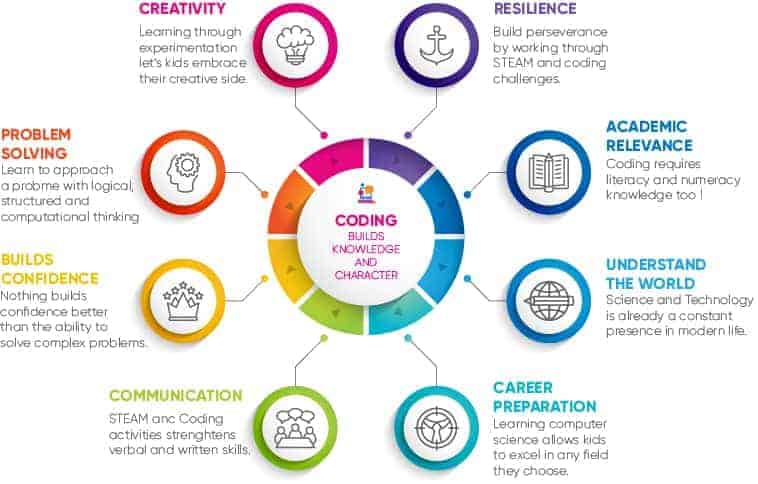Future Proof Education
Our success in preparing kids for their future depends on how well we let them develop relevant skills today. This is true whether we are educators or parents. We must always remember, we are preparing kids for THEIR lives. Not ours. What does this mean ? This means we have to identify the global trends that will have an impact on our kid’s ecosystem and value when they progress through their schooling life and then adulthood.
Table of Contents
What Is Happening Now That Will Impact Our Kids’ Lives ?
For one, we cannot avoid acknowledging that tech is now prevalent in every aspects of our lives. This trend is not reversible and will only be more obvious as the years go by. The digital age is simply here to stay, and there is no avoiding it. If we hide our heads in the sand like the proverbial ostrich, it will only mean our kids will be left behind. There are already a number of studies which indicate that jobs in future will look very different from the jobs we have now. The need for computer science knowledge and the appreciation of computational thinking will be of tremendous value whether or not our kids decide to embark on a professional computing career. Almost every economic sector will eventually embrace tech in some form or other. It is only logical that this happens because integrating advanced technology into into production of goods and services will only improve its economics.
So What Knowledge Is Relevant For Kids Now ?
Coding! This subject now is being dubbed as the 21st century addition to the curriculum. A growing number of countries are introducing coding into their school as part of their syllabus. In these visionary schools, students as young as four are being taught computational thinking and coding for the future. The rise in coding in schools stems from an increasing recognition that digital literacy is an essential component of modern education.
Coding In Europe And UK
The United Kingdom was one of the first European countries to adopt coding in their syllabus, making it compulsory from preschool level onward. The English coding curriculum is made of three key stages which teaches the students simple Boolean logic, binary codes and learning about hardware. Throughout the syllabus, students also learn about computer and internet safety. In Italy, coding has been brought to primary schools and designed to introduce students to IT via “a training programme that goes beyond initial digital literacy and makes youngsters aware of the potential of the new technologies and players actively involved in their development”.
In addition, Finland has also adopted coding as part of their core syllabus. Finnish education is known as one the best education system in the world. They consistently top OECD education tests and surveys. So, it is not surprising that they also recognise that coding is an essential skill for students to have. Independent fund Sitra, claims that the “future will be built by those who know how to code”. Coding is viewed as general knowledge in Finland, where many believe that coding is a qualified 21st century addition to basic education.
Other countries in the Western hemisphere adopting coding into their syllabus are Estonia, Bulgaria, Cyprus, Czech Republic, Denmark, Greece, Ireland, Lithuania, Poland and Portugal.
How About Asia ?
A Microsoft survey indicates that three out of four students in Asia Pacific want coding as a core subject. The results underscore there is broad realisation and understanding that technology has significant impact on society.
Singapore has been planning to introduce coding lessons to boost their economy. Private classes and collaborative efforts between polytechnics are already available.
South Korea was amongst the first of Asian countries to delve into introducing coding into their core syllabus. They began integrating the subject more heavily into their elementary and middle school curricula starting from 2007.
Japan is also taking the leap by making coding compulsory for all primary schools. The Japanese have acknowledged that they got off to a slow start to introducing programming into education, but it now aims to catch up. As tech grows increasingly more rooted in society, international competition in the tech space is heating up.
Wrapping It Up
The level of awareness of the importance of coding in our children’s lives is beginning to grow in the Asian region. There are, no doubt, still pockets of ignorance which can be a function of socioeconomic factors. Some parents also be waiting for their government to take initiative and make coding compulsory. This could be a costly mistake as tech advancements does not wait for bureaucratic protocols, which can be painfully slow. With so many countries implementing coding into their syllabus, do you think it is a bad thing to let your child learn coding ?


